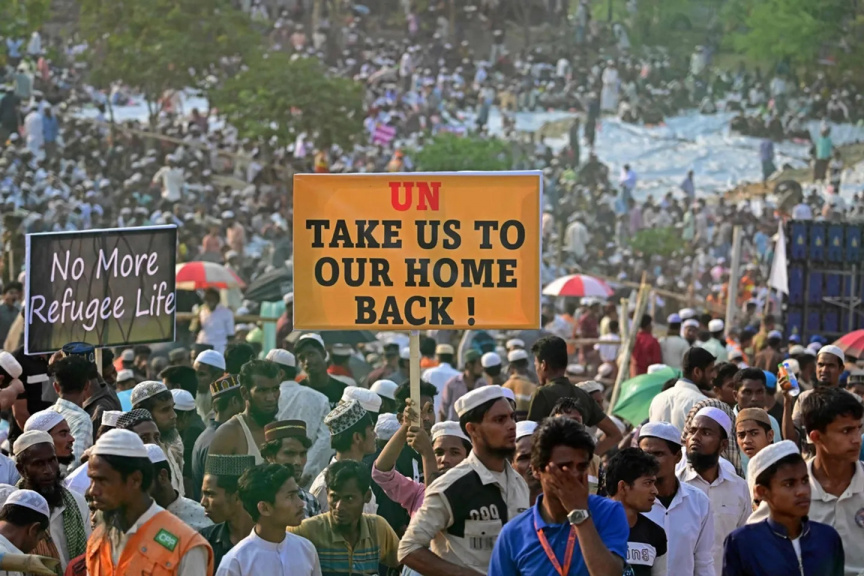
Bangladesh agrees to UN call to open humanitarian corridor for Myanmar citizens. (Photo/AFP)
Bangladesh has agreed to a request by the UN to establish a humanitarian corridor along its border with Myanmar’s Rakhine state for citizens of the war-torn country, officials said.
“The UN wants to create a humanitarian corridor through Bangladesh to send humanitarian aid to Myanmar’s Rakhine state. The transitional government has agreed in principle to this, subject to conditions,” Foreign Affairs Adviser Md. Towhid Hossain told reporters in the capital, Dhaka, on Sunday.
“It will be a humanitarian passage. But we have some conditions. I will not go into details. If the conditions are met, we will help,” he added.
Hossain said the conflict in Myanmar is linked to Bangladesh’s interests “because a large population of Myanmar has taken refuge in our country, and we want to send them back. We have to do whatever we need to do to send them back.”
Bangladesh is already hosting more than 1.3 million Rohingya refugees from Myanmar in Cox’s Bazar, who fled military crackdowns in August 2017.
Humanitarian crisis
Myanmar’s junta government has blocked all supplies to corner the Arakan Army rebel group in Rakhine state, which has worsened the humanitarian crisis further.
The UN fears famine in Rakhine and has asked Bangladesh to provide a corridor to deliver humanitarian aid.
Although humanitarian corridors are provided to help ordinary citizens, when such corridors are opened, criminals, including rebels or terrorist groups in the region, have the opportunity to use them as a safe route.
The region is also known as one of the routes for various cross-border crimes, including drug and illegal arms trafficking.
In response to that concern, Hossain said, "The corridor is considered for goods; weapons are not being taken."
Referring to Myanmar’s border with Bangladesh, he said that "here, the entire border is under the control of a non-state actor (the Arakan Army).
The central government of Myanmar (junta) has no control there. So for our own sake, we cannot have any kind of contact—that is, formal contact with non-state actors. But we cannot remain isolated (from the Arakan Army) even if we want to."
“So we will maintain as much communication as we need,” he added
___
Source: TRT